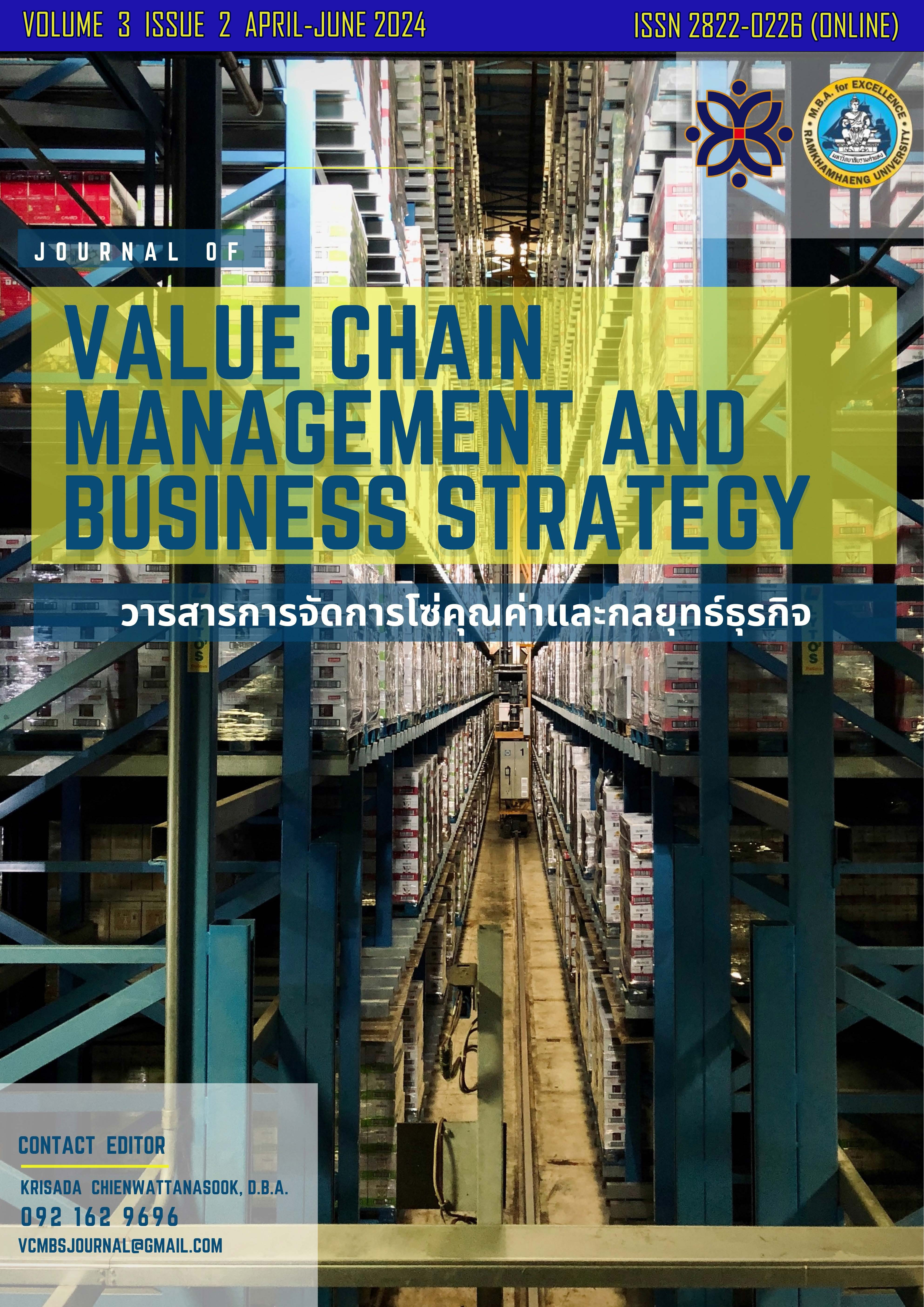THE QUALITY OF WORKING LIFE AFFECTING ORGANIZATION COMMITMENT EMPLOYEES OF A TOUR COMPANY IN BANGKOK
Keywords:
Quality of Working Life, Organization Commitment, Tour CompanyAbstract
The purpose of this study is to compare the organizational commitment of employees of a tour company in Bangkok according to personal factors and to examine the quality of work life that influences the organizational commitment of employees. The sample used for this research consisted of 145 employees of a tour company in Bangkok selected by simple random sampling. A questionnaire was used for data collection. The data were analyzed using frequency, percentage, mean, standard deviation and hypothesis testing with t-test, one-way analysis of variance and multiple regression analysis.
The results showed that personal factors, including gender, status, education, and work experience, did not differ in terms of organizational commitment, except for employees with different ages and incomes, which showed statistically significant differences in terms of organizational commitment at the .05 level. As for quality of work life, factors such as organizational constitution, job characteristics, social involvement, and social integration within the organization had a significant impact on organizational commitment among employees of a travel company in Bangkok at the .05 level, with a predictive power of 74.8%.
References
กรมควบคุมโรค. (2564). สถานการณ์โรคติดเชื้อไวรัสโคโรนา 2019 (COVID-19) มาตรการสาธารณสุข และปัญหาอุปสรรคการป้องกันควบคุมโรคในผู้เดินทาง. https://ddc.moph.go.th/uploads/files/2017420210820025238.pdf
การท่องเที่ยวแห่งประเทศไทย. (2560). รายงานประจำปี 2560. https://api.tat.or.th/upload/annual_report/live/รายงานประจำปี%202560.pdf
กิตติพงษ์ พิพิธกุล. (2561). คุณภาพเครื่องมือแบบสอบถาม : Validity กับ Reliability ในการวิจัยทางรัฐประศาสนศาสตร์. วารสารวิชาการและวิจัย มหาวิทยาลัยภาคตะวันออกเฉียงเหนือ, 8(2), 104-110.
ถาวร อ่อนลออ. (2561). ความผูกพันต่อองค์กรและคุณภาพชีวิตในการทำงานของบุคลากรมหาวิทยาลัยเทคโนโลยีราชมงคลพระนคร. วารสารนวัตกรรมการศึกษาและการวิจัย, 2(2), 101-116.
ทาริกา สระทองคำ, นนทวัฒน์ สุขผล, และวีรยา ศิริพันธ์. (2563). คุณภาพชีวิตในการทำงานที่ส่งผลต่อความผูกพันต่อองค์กร กรณีศึกษา บริษัท พลัส พร็อพเพอร์ตี้ จำกัด. วารสารวิจัยมหาวิทยาลัยเวสเทิร์น มนุษยศาสตร์และสังคมศาสตร์, 6(3), 60-71.
ธนาคารกรุงไทย. (2565). การเปลี่ยนแปลงภาคการท่องเที่ยวไทย กับก้าวต่อไปหลังเปิดประเทศ. https://www.bot.or.th/th/research-and-publications/articles-and-publications/bot-magazine/Phrasiam-65-3/the-knowledge-65-3-3.html
วลี สงสุวงศ์, แววมยุรา ศิรินภาวรากรกุล, จิณณพัต ชื่นชมน้อย, และศุภมาส สหพรพิทักษ์กุล. (2564). ปัจจัยที่ส่งผลต่อความผูกพันต่อองค์กรของพนักงานบริษัทผลิตภัณฑ์อาหารแห่งหนึ่ง. วารสารศิลปศาสตร์และอุตสาหกรรมบริการ, 4(2), 95-109.
Allen, N. J., & Meyer, J. P. (1990). The measurement and antecedents of affective, continuance and normative commitment to the organization. Journal of occupational psychology, 63(1), 1-18.
Buchanan, B. (1974). Building organizational commitment: The socialization of managers to work organizations. Administrative Science Quarterly, 19(4), 533-546.
Easton, S., & Van Laar, D. (2018). User manual for the Work-Related Quality of Life (WRQoL) Scale: a measure of quality of working life. University of Portsmouth.
Kelbiso, L., Belay, A., & Woldie, M. (2017). Determinants of quality of work life among nurses working in Hawassa town public health facilities, South Ethiopia: A cross‐sectional study. Nursing research and practice, 2017(1), 5181676.
Osibanjo, O. A., Adeniji, A. A., Falola, H. O., & Heirsmac, P. T. (2014). Compensation packages: a strategic tool for employees’ performance and retention. Leonardo Journal of Sciences, 25(1), 65-84.
Power, T. M. (2020). The economic value of the quality of life. Routledge.
Ramalho Luz, C. M. D., Luiz de Paula, S., & de Oliveira, L. M. B. (2018). Organizational commitment, job satisfaction and their possible influences on intent to turnover. Revista de Gestão, 25(1), 84-101.
Rhoades, L., & Eisenberger, R. (2002). Perceived organizational support: a review of the literature. Journal of applied psychology, 87(4), 698-714.
Singh, A., & Gupta, B. (2015). Job involvement, organizational commitment, professional commitment, and team commitment: A study of generational diversity. Benchmarking: An International Journal, 22(6), 1192-1211.
Uysal, M., Sirgy, M. J., Woo, E., & Kim, H. L. (2016). Quality of life (QOL) and well-being research in tourism. Tourism Management, 53, 244-261.
Walton, R. E. (1973). Quality of working life: What is it?. Slone Management Review, 15, 11-21.
Yamane, T. (1973). Statistics an introductory analysis. Harper & Row.
Downloads
Published
How to Cite
Issue
Section
License
Copyright (c) 2024 Journal of Value Chain Management and Business Strategy

This work is licensed under a Creative Commons Attribution-NonCommercial-NoDerivatives 4.0 International License.




